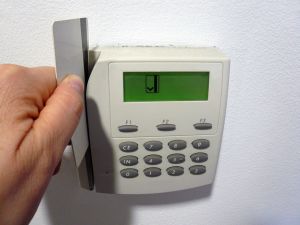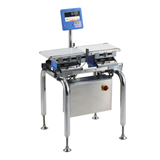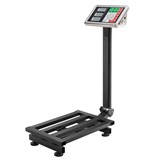But has Australia retained the same intensity?
A study of the government's 2010 counter-terrorism white paper suggests Canberra may have lost some of its focus.
This paper made a series of promises, including a close and routine check of the laws that help fight terrorism.
"An additional review of Australia's counter-terrorism legislation will be undertaken in late 2010 as agreed by COAG on February 2006," the white paper said.
That review does not appear to have happened and despite repeated requests, the Attorney-General's Department could not say if the review had taken place.
The question was, the department said, sent on to Prime Minister Julia Gillard's own bureaucrats.
The white paper also promised to create the "Parliamentary Joint Committee on Law Enforcement".
This was achieved by renaming the Parliamentary Joint Committee on the Australian Crime Commission.
One of the major concerns identified by John Howard in the wake of the September 11 attacks was the gaps in border security.
Aviation Security Identification (ASIC) and Maritime Security Identification (MSIC) cards were introduced in a bid to close these gaps.
The national audit office recently looked at the management of those cards and found some worrying problems.
Auditor-General Ian McPhee found no one knows how many cards there are.
"It is difficult to obtain a reliable count of the total number of current ASIC and MSIC cards, or the currency of all cards on the AusCheck database," McPhee wrote.
The auditor's report, along with the observations of its members, has the Transport Workers Union worried.
"With the US government issuing a worldwide travel alert, as well as Prime Minister Julia Gillard's statement that we need to make continuing preparations against acts of terrorism, the security at airports needs urgent attention," the union's national secretary, Tony Sheldon, said.
Sheldon said the most recent problem was a group of cleaners at Canberra airport.
"Just months ago in Canberra, a contracted cleaning company was found to be working for Qantas where only one of the seven guys working had an ASIC and one of them was working illegally on a student visa."
McPhee identified another problem.
"One card maker that has produced some 35,000 cards... and is not subject to any formal ongoing oversight by the Office of Transport Security."
While one of these cards is not proof of identity alone, it would help a would-be terrorist to create a fake identity.
The white paper certainly sees identity security as a concern, declaring it an issue "that can affect all Australians".
Another white paper commitment relates to the work of the rarely heard from counter-terrorism ambassador Bill Paterson.
"From the 2010-11 budget, the ambassador, through the minister for foreign affairs, will recommend annually to the National Security Committee of Cabinet a list of policy priorities for international counter-terrorism engagement."
When the Department of Foreign Affairs and Trade (DFAT) was asked if this had happened at some point in 2010-11, the response was indirect.
"In accordance with paragraph 5.6.2 of the white paper on counter terrorism (February 2010), the ambassador recommends to the National Security Committee of Cabinet the policy priorities for international counter terrorism engagement," a DFAT spokeswoman said.
"However, the department cannot comment on any discussions within the committee."
None of these issues were addressed by Prime Minister Julia Gillard in the wake of the bin Laden killing.
Instead her focus was on making sure Australians abroad registered with DFAT.
"So, if there's one message I can reinforce, any day you're travelling is a smart day to register with the DFAT website," Gillard said on May 3.
The white paper also promised the creation of a new position - independent national security legislation monitor.
The job was not filled for more than a year.
Acting Prime Minister Wayne Swan announced on April 21 that respected Sydney SC Bret Walker had been appointed to the position.
Away from the white paper and a political era ago, then prime minister Kevin Rudd made what he described as "the first national security statement to the parliament" in December 2008.
"The need for a regular national security statement is clear, but it has been long overlooked," Rudd said.
While Rudd's focus on national security was clear, Gillard has not delivered an updated "national security statement" since coming to power in June 2010.













